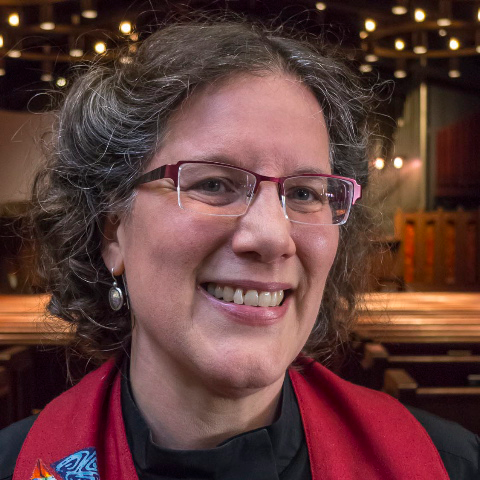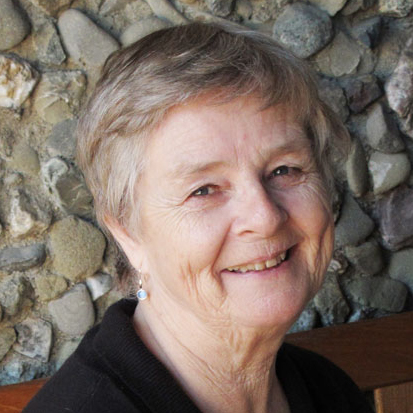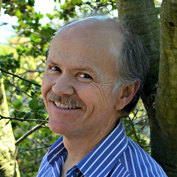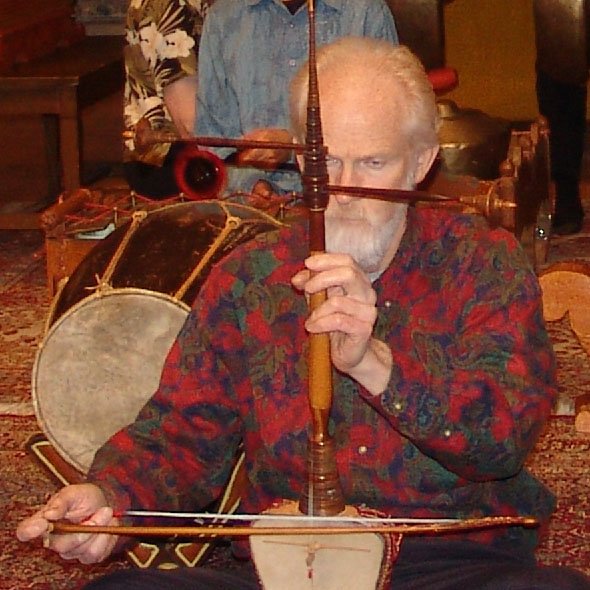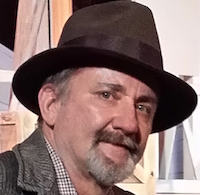One evening this last week a group of people committed to service to this congregation, ushers for the 11:00 service, sat around a dinner table.
It was to be a social occasion, an opportunity to get to know one another better.
Our host drew us in. She said, “How do you label yourself?”
She was inviting us to share our religious journeys.
As you would expect in a group of Unitarian Universalists,
we were across a wide spectrum of belief.
We are theists and atheists. We are agnostics and humanists.
We are Christian and Buddhist and Jewish.
We are “none of the above,” and “all of the above.”
No two stories were alike in content.
We each have our twists and turns,
our moments of insight and transformation
as we traverse the journey of our life.
After we made our round of the table,
with each one of us speaking the kernel,
the essence of our religious journey,
one of us said,
I just love that we don’t all have to have
the same belief and understanding.
Sometimes it is difficult for people unfamiliar with Unitarian Universalism to understand the significance of this affirmation.
Often there is a quick judgment that says,
“Oh, you mean you can believe anything you want to believe.”
The essence of Unitarian Universalism is we expect people
to follow their conscience in matters of religious belief,
and to test their truth in the context of community.
That’s how we grow.
That’s how we continually engage in creative transformation.
It is not commitment to a creed,
but to spiritual growth in the dynamic of community.
Over and over through the years I’ve heard it said,
“I didn’t know there could be a place like this.
I didn’t know there could be a community where I can be fully myself.”
Over and over people have told me
“I came for months and just sat in the pew and wept,
feeling for the first time in my life it was OK to be me.
I feel accepted here.”
Some people are the only one in their family who ever questioned their religious beliefs.
Others left the religion of their childhood because gay, lesbian, bisexual, and transgender people were not welcomed.
Some come hurting, suffering loss, wondering what life has left for them.
We say, “Whoever you are, whatever you are, wherever you are on your journey, you are welcome here.”
You are invited to follow your conscience in matters of religious belief,
to test your truth in the context of this congregation, and
to grow spiritually in this theologically diverse community.1
* * * * *
I want to talk about time,
the quality of our experience and
the future of this church.
Buddhist priest and meditation teacher Lewis Richmond
speaks of horizontal and vertical time.
Horizontal time is how we usually live our lives.
Our awareness of it begins in childhood and stretches into the future.
Horizontal time includes all those to do items on our calendars
that we remember looking back, and imagine
as we look at the calendar squares of days to come.
Horizontal time holds all our memories of hurts, our pains and sorrows.
Horizontal time is where we project abundance or scarcity.
Vertical time has a different quality. It is grounded in this moment:
no past, no future. Presence. Breathing in, breathing out,
aware of this place, these thoughts, these feelings, these people,
this moment.
Being fully present in the moment
gets us out of the seemingly endless race of horizontal time.
Being fully present in the moment
opens us to the possibility of experiencing vertical time.
Sometimes we speak of “going up to the balcony” to get a larger perspective…think of it as vertical time, a time we can fly,
a perspective in which the usual forms of perception slide away
and we see things, and their relationships, as never before.
The ancient Greeks had two words for time.
Chronos is our horizontal, usual way of thinking of time:
past, present, and future. It’s our chronology.
Kairos is time out of time. It’s this very moment.
It is vertical time, when past and future melt away
and we are left with the fullness of now,
the realization of the gift of life.
Kairos is when everything happens.
It’s when change is possible.
Kairos is the time of peak experience,
spiritual knowing,
awareness of our deep connection with All.
Christians sometimes speak of the cross this way:
the horizontal axis of humanity and
the vertical axis of the divine.
It is when we pause at the intersection
that we may glimpse a larger reality.
I think you know what I mean.
I think you have known times
when you rose above the hubbub of your life
and glimpsed your connection with All.
I think you have known times of stopping,
of stillness, when you could feel your heart beating,
and when you knew it is the heartthrob of all creation.
I want to invite you on a time journey.
I’ve been thinking about this congregation in horizontal time.
Think back to 1891 and the first gatherings of those who would become charter members of the First Unitarian Church of Berkeley.
Put a mark on 1898, when the first church building was dedicated
at Dana and Bancroft in Berkeley.
Sixty-three years later this building was dedicated,
and here it has stood, and here this congregation has gathered
for the last fifty-two years.
We’ve made some major upgrades. We replaced the roof and retrofitted for earthquakes in 1991, our centennial year. A decade later we resurfaced the parking lot, upgraded lighting and sound, and many other projects.
The Ellis Music Room was built.
A few years later more than 330 solar panels were placed on the roof.
We take care of this house, our religious home.
And, after an analysis of our facilities,
we decided to conduct another capital campaign next fall,
to replace what is worn out,
and to upgrade and beautify this building.
In horizontal time we see buildings built, and age, and be restored.
What do we see when we rise up on the vertical dimension of time?
Imagine a kairos moment, an inkling of time out of time,
an opportunity to sense a larger vision,
an intuition about how all that has happened
and all that will happen
are connected, not by minutes and hours and years,
but by meaning and value and commitment.
Imagine our religious ancestors in 1891, in their kairos time.
Imagine their boldness, their vision, their conviction.
Rising above the day to day of their lives they knew
this world, this Bay Area would be a better place
if this congregation was organized,
if this church was built.
We Unitarian Universalists are unusual when it comes to our understanding of what it means to be religious people.
We do not expect adherence to a set of beliefs.
We expect the opposite:
commitment to the journey of unfolding truth.
It’s a life transforming shift,
from the expectation that life is living a set of once revealed requirements,
to the realization that we participate in on-going creation,
that human being is constantly evolving,
that being fully human is opening to,
and holding ourselves accountable to
the vertical in every moment of horizontal time.
Imagine our religious ancestors in 1961.
For some of you it is a memory.
Imagine their boldness, their vision, their conviction
that here, on this hill, will stand a temple to unfolding truth.
Here doors will open to welcome in the religious wayfarer.
Here children will know they are valued
Here lives will be saved from bigotry and the harm it causes.
Don’t forget this: Lives are saved here.
Here we learn to appreciate our differences.
We open to the variety of life.
We celebrate our freedom to live.
We commit to spiritual growth in a theologically diverse community.
As the weeks and months of chronological time roll on,
we will make choices that will shape the future of this congregation.
Before we make these choices, let’s stop,
and breathe, and remember.
Let’s ground ourselves deeply in our commitment to love and justice.
Then let’s rise up to a higher view.
It’s our turn for boldness, for vision, for conviction.
I’ve heard people wonder if we can afford to stay here on this hill.
It is a powerful question and one we must answer.
If the answer is to be “Yes,” it will be because we have claimed our calling.
We can do more than fix doors and furnaces.
Fix them we will.
And, we can make of this place a 21st Century testament
to the life-saving power of religious freedom.
Our children and grandchildren deserve this gift:
A religious home in which they can become themselves,
where they can sing, and dance, and create,
where they can hone their skills of authentic living,
where they can learn to be saviors of religious freedom,
spiritual but not dogmatic.
Can you imagine investing in the generations to come,
creating here the house where their hopes and dreams
will be born and nurtured and offered as healing to a hurting world?
Do you understand what I am saying?
Deep inside you, below any uncertainty,
beyond any skepticism or fear,
any message that says “we can’t do that”
is there a seed of boldness, of vision, of conviction
waiting for your blessing?
This is the most important question this congregation
has asked in a generation.
The answer is forming within you.
The divine spark within each of us,
the divine spark within this congregation,
calls us not to dwell in uncertainty, doubt, and fear.
Acknowledge, yes there are questions for which we don’t have answers.
Embrace the questions, and open to answers unfolding.
Let us live into the future with boldness and commitment.
Let us ask what purpose are we serving?
Let us create a home for the children of the future.
They will grow up in an ever-increasing intercultural world.
Like no generation before them they will cross borders
of race, ethnicity, gender, and religion.
Like no other religion, we are posed to offer spiritual communities
to encourage and support them.
Imagine a circle of ushers, thirty, forty, fifty year from now,
sharing their journeys, looking back.
What will they remember?
In our boldness what might we envision to sustain and grow this community:
21st Century school buildings?
A co-housing community on these grounds?
21st Century technology to make this an attractive retreat center?
A satellite congregation in Richmond?
Let your imagination create the answers.
Let’s raise enough money to fix what needs fixing
and to invest in planning for a sustainable future
that generations to come will look back in gratitude,
to our boldness, our vision, and our conviction.
May we be like the mountain stream
flowing down in chronological time
arriving at the desert of uncertainty.
Can we afford to stay here?
Will we dry up?
How do we go forward?
What alternatives can we imagine?
May we be like the river when it risks something new,
when it surrenders to the power of vertical time,
rises to a new height,
and becomes something more,
more magnificent,
more life-saving,
more bold.
1 Thanks to Rev. Christine Robinson for her encouragement at the Western Regional Assembly to understand our Unitarian Universalist identity as encouraging spiritual growth within theological diversity.
Copyright © 2013, Rev. William Hamilton-Holway. All Rights Reserved.







